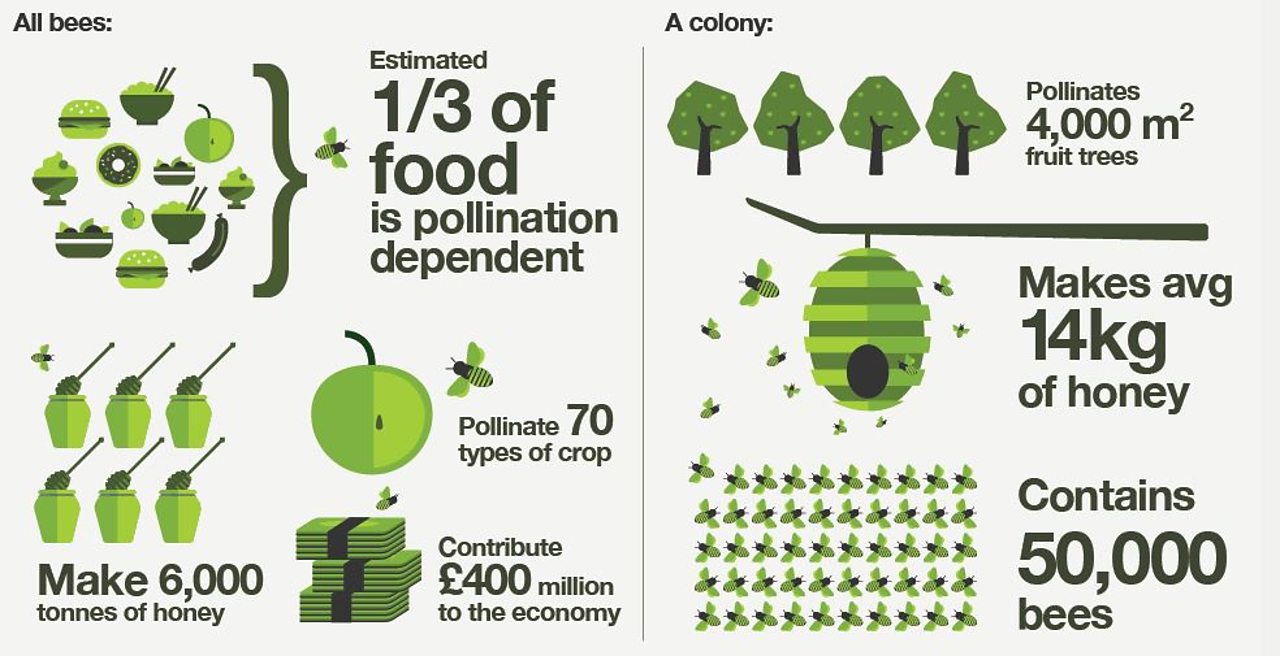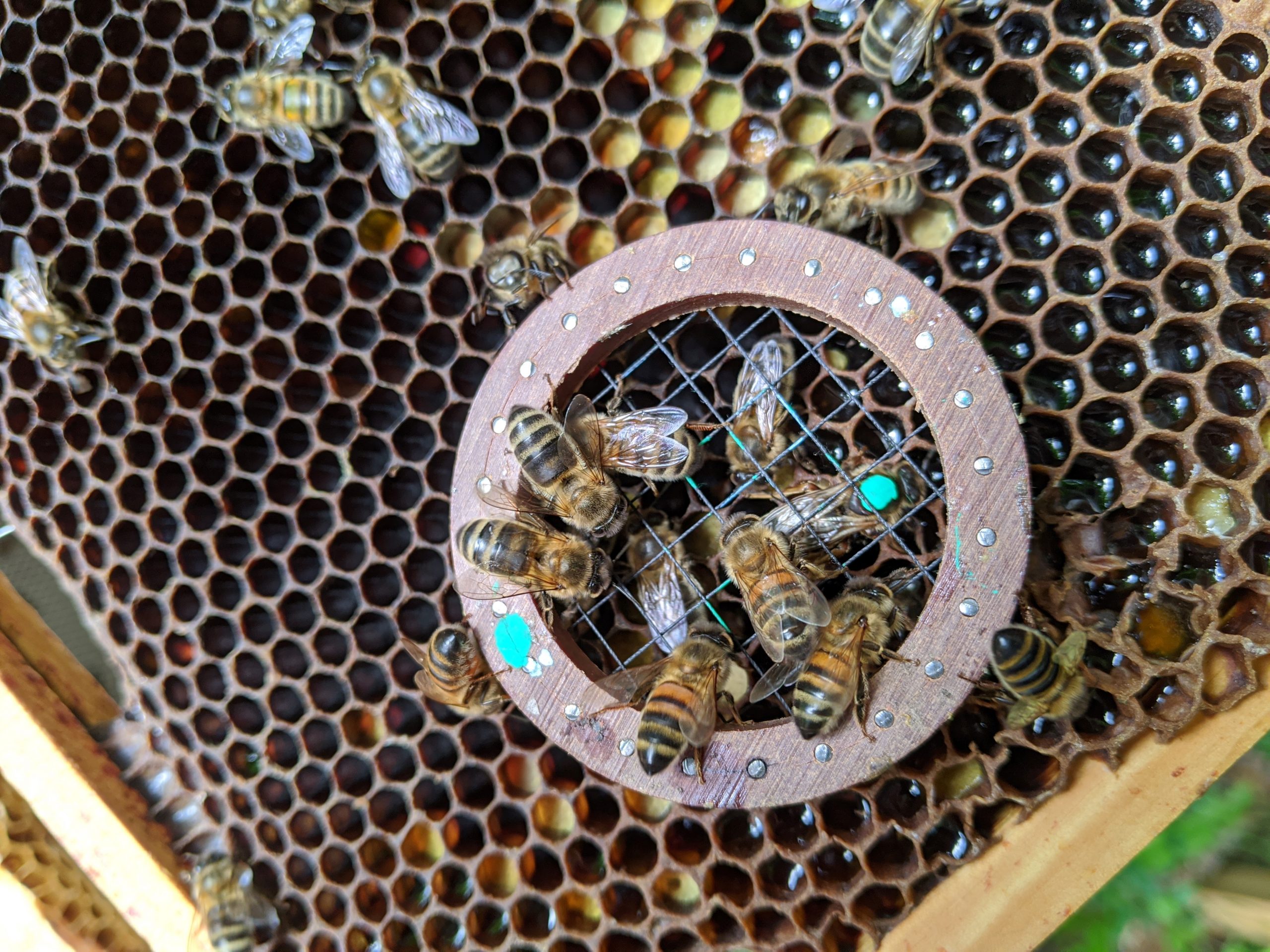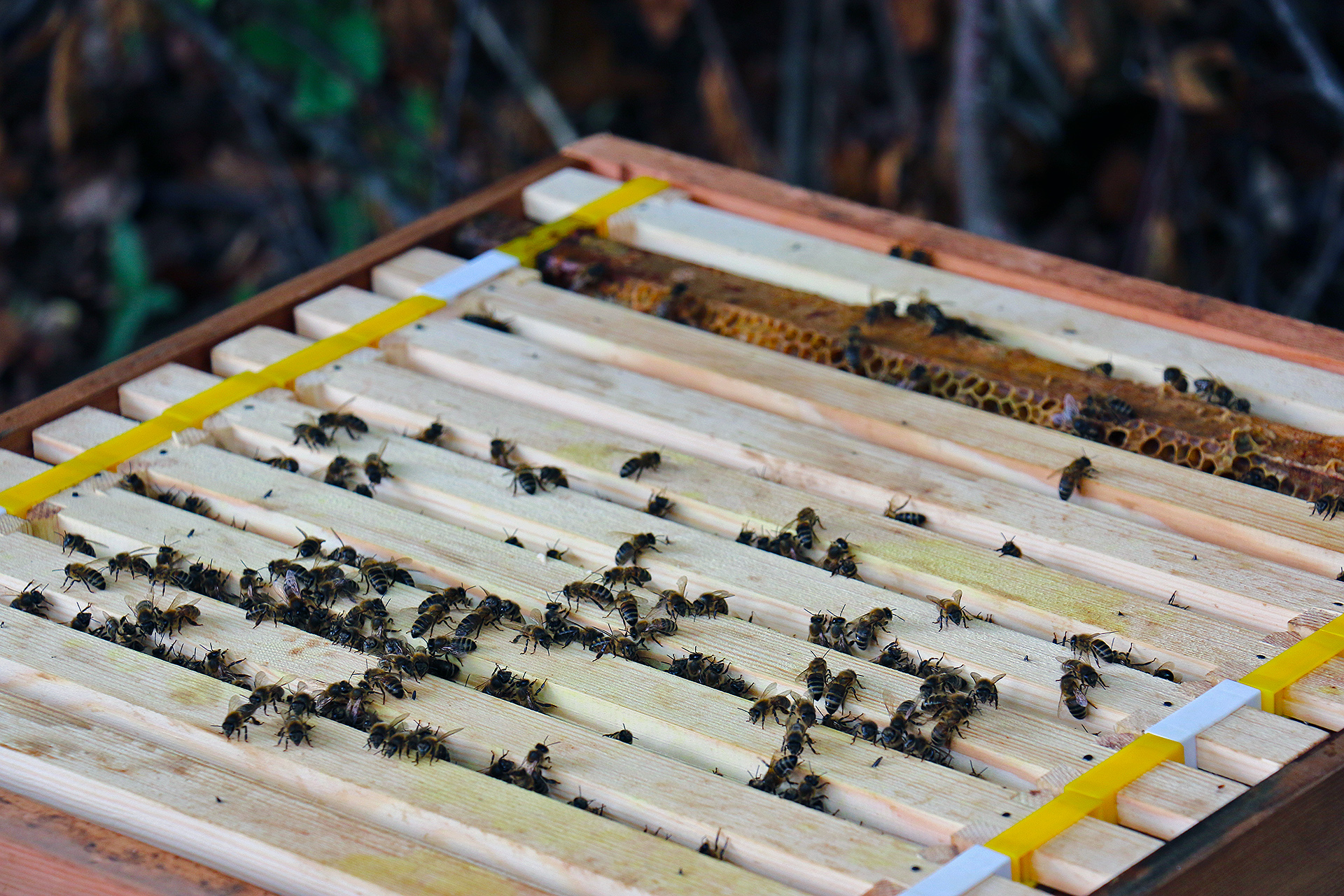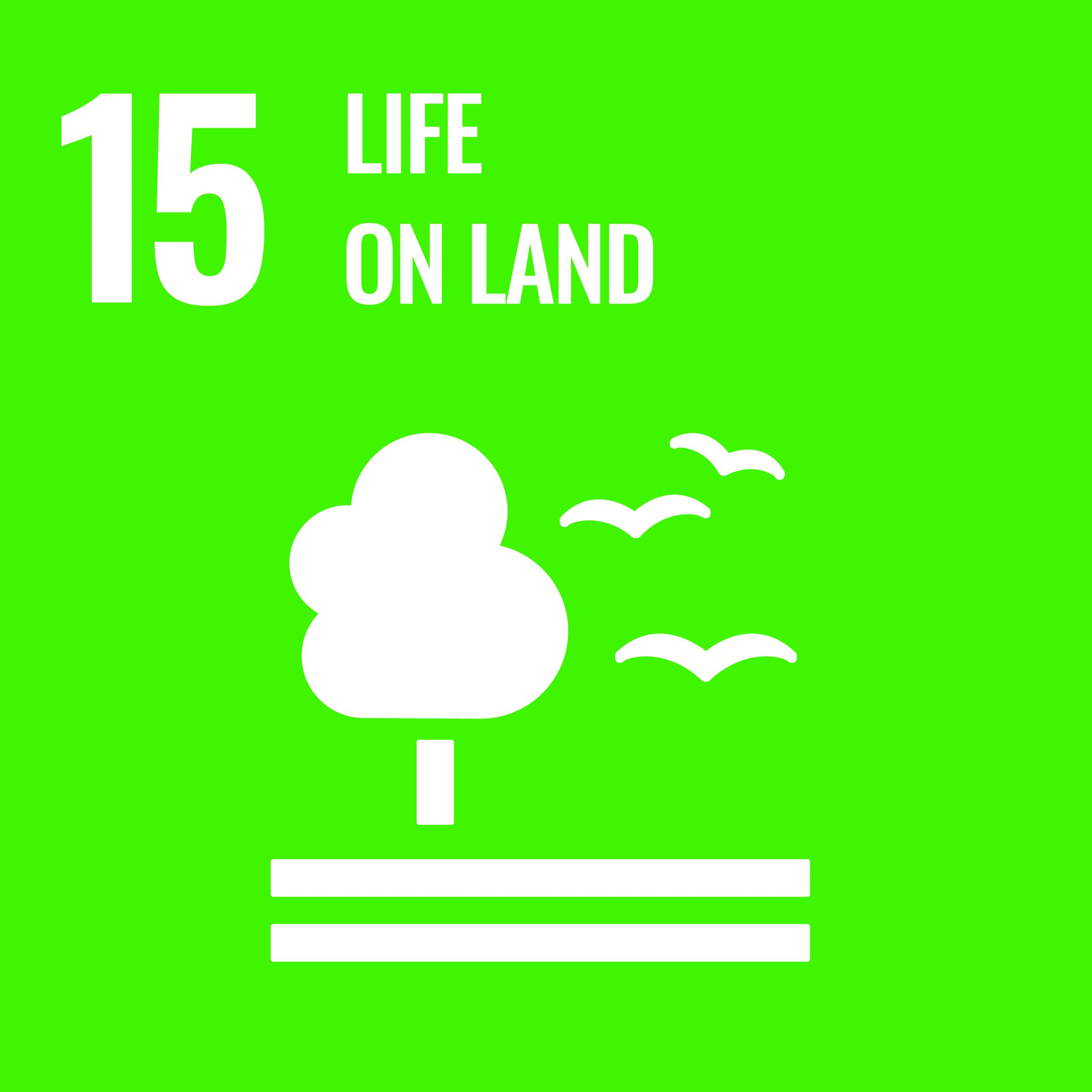World Bee Day 2020: Bee Engaged!
The COVID-19 pandemic has had an unfortunate impact on the beekeeping sector, significantly impacting the livelihoods of beekeepers and therefore threatening the upkeep of their bee colonies. Therefore, the theme of this year’s World Bee Day is “Bee Engaged”. It aims to draw attention to the importance of engagement from countries, governments, the public, organisations, and research and educational institutions like Loughborough University in order to support beekeepers and preserve bees.
The beekeeping year is well underway at the Loughborough Apiary and the bees are doing well. In our last newsletter issue we gave you an update on what had been happening earlier this year. Over the winter period the team have been working hard to clean the existing equipment and assemble the extra kit needed for the current season. Fortunately, this work was managed to be largely completed before the restrictions due to COVID-19 which has meant that managing the bees with limited numbers of staff has been possible.
Ollie, one of our apiary volunteers, spends around 3 hours per week looking after the bees. “I volunteer because I find the bees fascinating and as they support the environment”. Bees are not just for honey. They play a vital role in supporting biodiversity as well as maintaining a stable ecosystem and food supply. One third of the food we eat is dependent on pollination by bees!

But honey bees are disappearing globally at an alarming rate due to pesticides, parasites, disease, and habitat loss. Present species extinction rates are 100 to 1,000 times higher than normal due to these human impacts.
That’s why the Sustainability team started the apiary project. Sustainability Manager, Jo Shields, makes it clear that “it’s a bonus to take some honey and not the main reason we keep the bees here at Loughborough”. Instead, the main reason is to support local bee populations and biodiversity, as well as educate staff and students on the importance of this.
For World Bee Day, Ollie has given us a great update on what’s going on at the campus apiary…
“At the start of the season until about mid-June the colonies are building up so that they have a larger work force to gather the nectar to make the honey for their winter stores. Due to their being a smaller number of bees (approximately 10,000) it is a good opportunity to mark the queens so they are easier to spot later in the season.

During this period, it is also the time that the colonies are likely to reproduce, a process that is better known as swarming. Therefore, the focus at this point checking the hives are healthy and managing them in such a way to minimise the number of swarms. This is done by inspecting weekly to check for progress and giving them extra space where needed by adding honey supers. The honey super is a box that holds the frames where the bees will store their honey.

In some cases, colonies will want to swarm and will produce queen cells. We are currently in the height of swarm season and so the majority of the inspections have involved swarm management. This is where we trick the bees into thinking they have swarmed by producing a new colony. Currently there are 10 colonies and there is still almost of month to go where swarming needs to be managed.
As we move into the summer the bees focus will be collecting nectar and producing honey, which brings new challenges with the restrictions and social distancing measures.”
There are plenty of webinars, activities, and projects you can take part in to celebrate World Bee Day this year. So bee engaged and check them out here! You can also watch how Loughborough honey goes from hive to jar in our YouTube video below.
This project supports Sustainable Development Goal 15: Life on Land. Read more here.
Sustainably Speaking
Loughborough University Sustainability Blog
